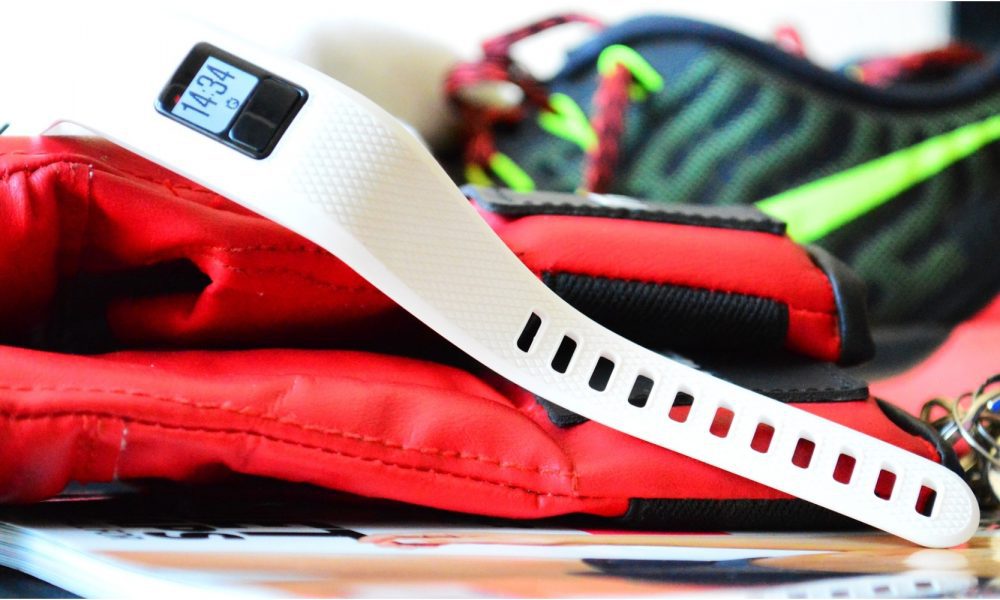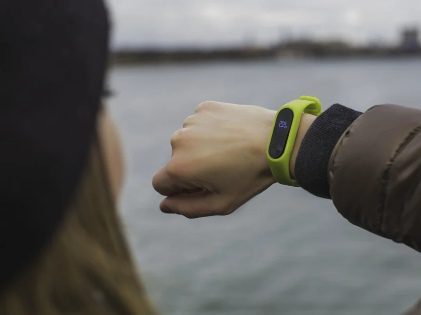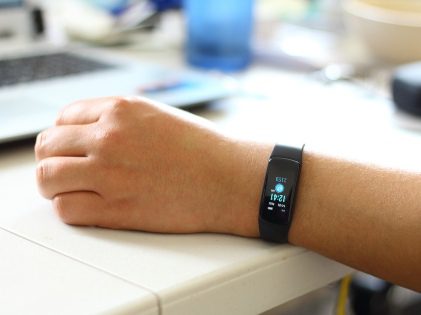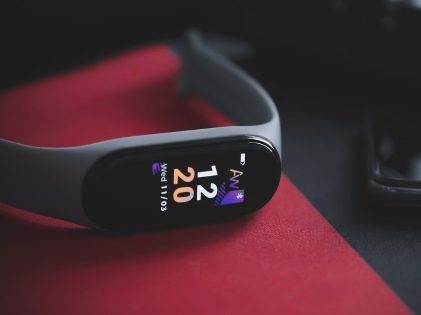
Is Your Fitness Tracker Accurate?

Fitness trackers help measure not just the number of steps taken. It also helps monitor heart rate, the number of calories burned, the body’s metabolic rate, and sleeping patterns. It is useful in clinical trials, research centers, health insurers, and health and wellness campaigns. However, these devices are not always correct. Several factors influence the accuracy of these fitness trackers. The researchers believe that they provide the most accurate information when someone in their 20s or 30s, with light skin tone, an average fitness level, and a “purposeful” walk uses it.
Step Counters: How Accurate Do You Think They Are?
 The step counters provide a comprehensive count of the number of steps taken. These gadgets approximate it using an accelerometer. Step counters employ electromagnetic sensors that can detect any movement. These fitness trackers use sophisticated machine learning algorithms and artificial intelligence. And it can recognize the pattern which counts as one step.
The step counters provide a comprehensive count of the number of steps taken. These gadgets approximate it using an accelerometer. Step counters employ electromagnetic sensors that can detect any movement. These fitness trackers use sophisticated machine learning algorithms and artificial intelligence. And it can recognize the pattern which counts as one step.
Step counters can also take additional parameters into accounts, such as height, weight, and age. Furthermore, they can provide the most accurate counts when people walk with purpose and normally. However, in the process of development,’ most step counters use data from college students in their early twenties.
However, the walking pattern is visibly affected by age. The walking manner and opaqueness of a youngster and an older woman will not be the same. As a result, errors arise. In recent days, they have been provided with biometric information to make step counts more accurate.
According to one research, the fitness trackers undercounted the total number of steps over half of the time. So, if you want to compare your daily activity levels, a step counter might be a useful tool. If you’re striving for the fabled 10,000 steps each day, your estimate may be incorrect. Don’t compare your steps to others’ because they aren’t counted equally for all of us.
Your Skin Tone And Exercise Intensity Can Affect Your Heart Rate, Count.
 The majority of fitness trackers use photoplethysmography to calculate the heart rate. This device measures blood volume by beaming a green LED light into the wrist. If you exercise, your heart beats faster, causing more blood to be pumped to the blood vessels and more green lights to be absorbed.
The majority of fitness trackers use photoplethysmography to calculate the heart rate. This device measures blood volume by beaming a green LED light into the wrist. If you exercise, your heart beats faster, causing more blood to be pumped to the blood vessels and more green lights to be absorbed.
The blood wanes away between pulses, absorbing less light. The device calculates heart rate based on these measurements. The green light had to penetrate through the skins to measure the blood volume, which may cause inaccuracies, but the more the melanin content, the more likely it is to be absorbed. Additionally, the studies found that the error rate during activity was 30% higher than at rest. Tattoos and dark skin can also contribute to the inadequacy of your wrist- or fitness trackers.
Red light is more accurate and reliable than green light. However, movement patterns are easy to disregard. So many gadgets even now depend on the green light to assess heart rate during exercise. The greater the variability in our workout, the greater is the distinction.
Overall, some heart rate monitors work well under certain conditions. And if you are trying to track heart rate for fun or to start comparing the intensity of your workouts nonchalantly—keep in mind that they are not ideal.
Calorie Counts Can Really Alter The Accuracy Rate Of Your Fitness Trackers.
 Things get a little trickier here. Fitness trackers use proprietary algorithms to calculate the calories burned or the amount of energy spent. To get more accurate information, you can customize your tracker with personal information such as age, gender, weight, height, etc. And you know your basal metabolic rate or the number of calories burned.
Things get a little trickier here. Fitness trackers use proprietary algorithms to calculate the calories burned or the amount of energy spent. To get more accurate information, you can customize your tracker with personal information such as age, gender, weight, height, etc. And you know your basal metabolic rate or the number of calories burned.
According to one study, no device had an error rate of less than 20% when calculating calories burned. Regardless of how good the algorithms are, inaccuracy makes a difference in the calorie counts. After all, humans are not machines, and these algorithms are for machines. The calorie counts were discovered to work most accurately for white males in their 30s with average fitness levels.
Fitness trackers can help customers gain knowledge regarding themselves, recognize patterns, and analyze behavior. But the information from this equipment is not something you can consider as the absolute truth. It would help if you consult a healthcare expert to monitor and track your health.
More in Fitness
-
`
The Physical Signs of Hunger and How Mindful Eating Makes a Difference
Hunger is one of the most basic yet essential signals our body uses to communicate its need for energy. However, many...
December 15, 2024 -
`
Why Did Chris Pratt Call Anna Faris Before Proposing to Katherine?
Chris Pratt, the beloved star of “Guardians of the Galaxy,” made headlines when he revealed that he called his ex-wife, Anna...
December 3, 2024 -
`
6 Proven Tips to Tackle Insurance Claim Denials Successfully
Claim denials are a common hurdle for healthcare providers and professionals, even for those who follow the necessary procedures to avoid...
December 1, 2024 -
`
5 ‘Bad’ Fitness TikTok Trends You Shouldn’t Follow
TikTok has become a haven for creative fitness advice. But not all trends are worth your time or your health. From...
November 23, 2024 -
`
Does Drinking Water Affect Adrenal Hormones?
Drinking water is often seen as a simple way to stay hydrated, but it has deeper effects on our body than...
November 14, 2024 -
`
Why We Feel the Loss of Celebrities So Deeply?
Celebrity grief might sound strange at first. After all, most of us have never met these famous figures in person, yet...
November 5, 2024 -
`
Are High Deductible Insurance Plans as Ideal as They Appear to Be?
High deductible insurance plans have been a hot topic for years, especially as healthcare costs continue to rise. For many Americans,...
October 31, 2024 -
`
How Training Load Data Can Transform Your Exercise Routine
Tracking progress during workouts is challenging. Simple metrics like mileage or time don’t show the whole picture. Understanding the overall effort...
October 26, 2024 -
`
Katy Perry’s Weight Loss Journey: Secret Diet Tips Revealed
Katy Perry’s weight loss journey has been making headlines, with the pop star shedding 20 pounds over the past few months....
October 16, 2024















You must be logged in to post a comment Login